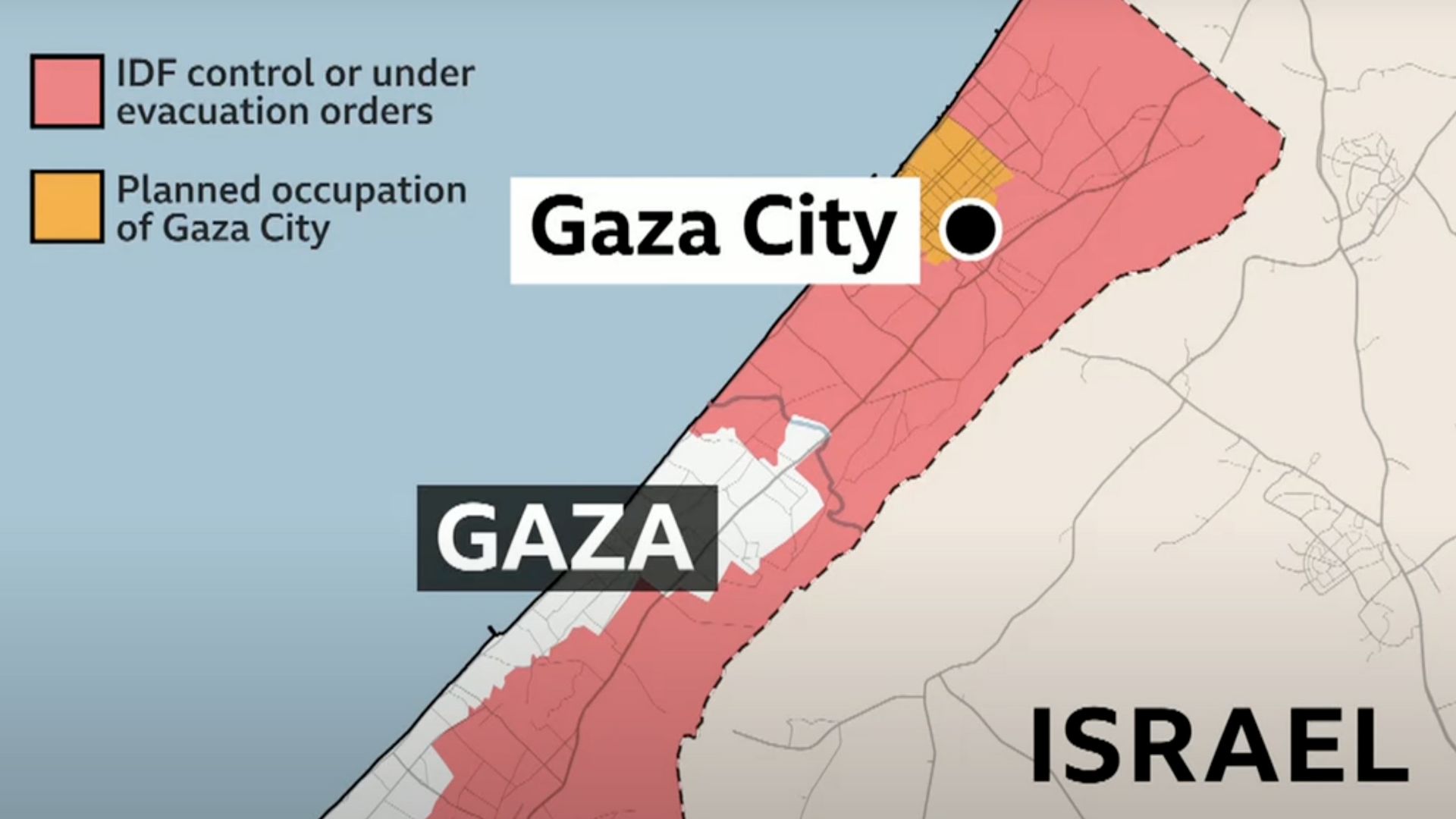Six Palestinians were reportedly killed and dozens wounded as they queued for humanitarian aid in central Gaza on Saturday, intensifying a backlash against Israel’s newly approved plan to seize Gaza City. Gaza’s civil defence said Israeli troops opened fire near an aid point; the Israeli military did not immediately comment. The incident came a day after Israel’s security cabinet backed Prime Minister Benjamin Netanyahu’s push to take control of Gaza City, a move condemned by allies and regional powers and now headed to an emergency UN Security Council session.
The shooting, reported by Gaza civil defence spokesman Mahmud Bassal, underscores the peril faced by civilians forced to risk their lives for food. Aid agencies warn that Gaza is tipping into famine conditions, with UN-backed monitors stating the “worst-case scenario” is unfolding and parts of the territory breaching key famine thresholds.
Israel insists the Gaza City operation does not amount to reoccupation. In a message amplified by his office, Mr Netanyahu said Israel sought to “free Gaza from Hamas” and enable a future civilian administration, even as Israeli media and officials have signalled preparations for a full takeover.
Germany responded by curbing arms exports that could be used in Gaza, a striking shift for Berlin given its historic support for Israel, while Britain, France and others urged restraint. Chancellor Friedrich Merz’s government said Israel’s plan would not achieve its stated aims and risked worsening the humanitarian catastrophe and endangering hostages.
The diplomatic shockwaves have widened rifts among Western partners. Visiting the UK, US Vice-President JD Vance acknowledged “disagreements” with London over Gaza policy - notably Britain’s openness to recognising a Palestinian state, even as he stressed shared goals to end the crisis. The contrast in approach comes as Washington signals continued support for Israel’s security aims while European capitals harden criticism.
Regional reaction has been blistering. Turkey’s foreign minister, Hakan Fidan, urged Muslim nations to act “in total unison” against the Gaza City plan after talks with Egypt, as the Organisation of Islamic Cooperation rushed to convene. A joint grouping of Arab and Muslim states branded the move a “dangerous escalation” and a flagrant breach of international law.
At the UN, Panama, which holds the Security Council presidency in August, confirmed a packed crisis agenda. The Council’s emergency meeting on the Gaza plan, initially slated for Saturday, was rescheduled to Sunday at 10am New York time, reflecting the diplomatic scramble and sensitivities around weekend deliberations.
Britain announced a further £8.5m for UN relief efforts, to be channelled through OCHA, with development minister Jenny Chapman demanding Israel allow the Strip to be “flooded with aid”. With crossings tightly restricted and convoys frequently looted en route, UN data show life-saving supplies and nutrition support are still not reaching most children in need.
The humanitarian picture grows starker by the week. The IPC, the global standard for assessing hunger, warned on 29 July that famine-level conditions are “now unfolding” in parts of Gaza amid collapsed services and restricted access. OCHA says families are going days without food and that “no one should ever be forced to risk their life to get something to eat”.
The fallout extends beyond diplomacy and aid. Microsoft has launched internal scrutiny of reports that Israel’s military intelligence Unit 8200 has been using Azure cloud services to store a vast archive of intercepted Palestinian phone calls, data alleged to have supported targeting in Gaza and the West Bank. The Guardian, +972 Magazine and Local Call detailed the system’s scale; Microsoft is assessing whether staff in Israel fully disclosed its scope.
Israel’s decision has reverberated across the region. In south Lebanon, five Lebanese soldiers were killed when munitions exploded as the army worked to dismantle ordnance at a Hezbollah site - a grim reminder of how the Israel-Hezbollah war has littered the borderlands with deadly remnants.
In Iran, authorities said they are investigating scores of people for suspected links to Israel following the recent 12-day war between the arch-foes. Tehran’s intelligence ministry previously claimed the arrest of 20 alleged Mossad agents in multiple provinces, part of a sweeping crackdown that has drawn international scrutiny.
Inside Israel’s government, Mr Netanyahu’s Gaza City plan has reportedly faced unease from military leaders and hostage families who fear operations could imperil captives still held by Hamas. The Prime Minister’s allies argue only overwhelming force will break Hamas’s hold and compel a deal; critics, including European governments, warn that expanding control risks de facto reoccupation, long-term insurgency and further isolation.
The UN session on Sunday will likely centre on whether Israel’s plan contravenes international humanitarian law and whether any Council action can overcome veto politics. Previous attempts to secure binding measures have repeatedly stalled, even as UN agencies catalogue surging child malnutrition, disease and displacement in Gaza.
For civilians queueing for flour and tinned goods, such deliberations remain painfully abstract. Saturday’s reported shooting of aid-seekers, one in a string of deadly incidents near distribution points in recent weeks, illustrates the collision of military strategy and survival. Each hour saved in opening corridors for food, water and medicine can be measured in lives. Whether Sunday’s diplomacy moves beyond statements and into enforceable relief will be the measure by which this weekend is judged.

Comments
No comments yet. Be the first to comment!